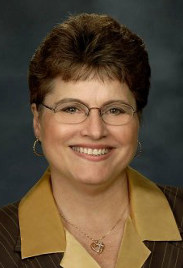 I happen to love doing research. Its way more fun than typing out a novel. Happily, for me, research and writing about the Amish do go hand in hand. I’ve learned about goats, about quilting, about alpacas and sheep and shunning all in an effort to make my Amish stories believable and accurate. I hope I have succeeded. However, some of the most interesting facts I’ve discovered about the Amish haven’t gone in a book. Yet.
I happen to love doing research. Its way more fun than typing out a novel. Happily, for me, research and writing about the Amish do go hand in hand. I’ve learned about goats, about quilting, about alpacas and sheep and shunning all in an effort to make my Amish stories believable and accurate. I hope I have succeeded. However, some of the most interesting facts I’ve discovered about the Amish haven’t gone in a book. Yet.
Case in point. The Amish are helping pave the way in genetic research.
In between Amish farms near Strasburg, in Lancaster County, Pennsylvania sits a unique building. It may be the only medical center in the U.S. with both a hitching post for buggies and an Ion Torrent Sequencer, an advanced laboratory machine designed to study DNA.
The medical center is called The Clinic for Special Children. It was established by Dr. D. Holmes Morton in 1989. The land the clinic is located on was donated by an Amish farmer. The original timber framed building was “raised” by Amish and Mennonite volunteers in 1990. The facility specializes in the genetic problems of the Amish and Old Order Mennonites, but the research being done on genetic disorders has wide medical relevance.
The goal of the clinic is to diagnose genetic diseases early enough to intervene. The clinic, although primarily pediatric, sees over 2000 people with 150 recessive disorders, including several hundred adults. About half of the conditions can be treated if the patients are diagnosed before the disease progresses too far. Patients come from surrounding parts of the state, but they also come from over 30 states and 14 other countries.
While the clinic has identified nearly 150 “new” genetic disorders in the Amish and Mennonite populations, these disorders are not unique to the Plain populations. They are typical of genetic problems found world-wide. As a neonatal nurse, I’ve seen these rare but devastating illnesses strike non-Amish families, too. The Amish and Old Order Mennonite populations today are descended from a few hundred German-Swiss settlers. Generations of intermarriage have caused rare genetic flaws to show up more frequently. We non-Amish carry the same flawed genes but they only show up in our children when we marry someone with the identical flawed genetic makeup.
In my research, the fact that stunned me the most was learning about the willingness of the Amish to become research subjects for this cutting edge medicine. Midwives collect cord blood for testing. Amish parents give blood samples and detailed family histories to researchers all in an effort to find cures for their children. In one instance, a disorder suddenly took the lives of two young brothers. The concerned doctors worried about how to get blood samples and diagnose others who might be at risk. The family suggested the best way to get the samples from their extended family was at an upcoming wedding. Three clinic staff members drew blood for several hours at the wedding reception and identified 12 boys who were at risk for the overwhelming infection, and 14 female carriers. While the Amish believe special needs children are special gifts from God, they also know modern medicine can help their children live long and productive lives.
The Amish do not have health insurance and do not take government aid. They work and raise funds to support each other. The Clinic operates as an independent, non-profit organization. They charge low fees and use no government funds. Plain communities now operate 5 separate quilt and furniture auctions across Pennsylvania and Ohio, which collectively generates about 1/3 of the Clinic’s operating budget.
To check on auction dates, read more about the Clinic, or to make a donation to this remarkable organization, CONTACT: The Clinic for Special Children, P.O. Box 128, Strasburg, PA 17579. Tel. 717-687-9407. www.ClinicForSpecialChildren.org
I haven’t found a way to work them into one of my stories yet, but I will.
Blessings all,
Patricia Davids
 USA Today Bestselling author Patricia Davids grew up on a Kansas farm with four brothers. After college she began a wonderful career as a nurse. In 1973 Pat wrote a letter to a lonely sailor. Little did she know her talent with words would bring her love, marriage and motherhood.
USA Today Bestselling author Patricia Davids grew up on a Kansas farm with four brothers. After college she began a wonderful career as a nurse. In 1973 Pat wrote a letter to a lonely sailor. Little did she know her talent with words would bring her love, marriage and motherhood.
An avid reader, Pat longed to write a book, but put her dream on hold as she raised a family and worked in an NICU, a place of true miracles. It wasn’t until 1996, after her daughter left home, that Pat began writing seriously. Today, Pat loves to travel, but mostly she enjoys crafting emotionally satisfying romances where love and faith bring two people together forever. She lives in Wichita, Kansas with two dogs, her daughter and her granddaughter and still visits her parents on the farm where she grew up.
Visit with Patricia at patriciadavids.com and Facebook.

